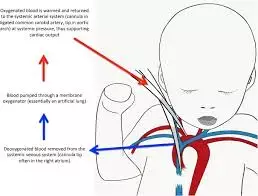- Home
- Medical news & Guidelines
- Anesthesiology
- Cardiology and CTVS
- Critical Care
- Dentistry
- Dermatology
- Diabetes and Endocrinology
- ENT
- Gastroenterology
- Medicine
- Nephrology
- Neurology
- Obstretics-Gynaecology
- Oncology
- Ophthalmology
- Orthopaedics
- Pediatrics-Neonatology
- Psychiatry
- Pulmonology
- Radiology
- Surgery
- Urology
- Laboratory Medicine
- Diet
- Nursing
- Paramedical
- Physiotherapy
- Health news
- Fact Check
- Bone Health Fact Check
- Brain Health Fact Check
- Cancer Related Fact Check
- Child Care Fact Check
- Dental and oral health fact check
- Diabetes and metabolic health fact check
- Diet and Nutrition Fact Check
- Eye and ENT Care Fact Check
- Fitness fact check
- Gut health fact check
- Heart health fact check
- Kidney health fact check
- Medical education fact check
- Men's health fact check
- Respiratory fact check
- Skin and hair care fact check
- Vaccine and Immunization fact check
- Women's health fact check
- AYUSH
- State News
- Andaman and Nicobar Islands
- Andhra Pradesh
- Arunachal Pradesh
- Assam
- Bihar
- Chandigarh
- Chattisgarh
- Dadra and Nagar Haveli
- Daman and Diu
- Delhi
- Goa
- Gujarat
- Haryana
- Himachal Pradesh
- Jammu & Kashmir
- Jharkhand
- Karnataka
- Kerala
- Ladakh
- Lakshadweep
- Madhya Pradesh
- Maharashtra
- Manipur
- Meghalaya
- Mizoram
- Nagaland
- Odisha
- Puducherry
- Punjab
- Rajasthan
- Sikkim
- Tamil Nadu
- Telangana
- Tripura
- Uttar Pradesh
- Uttrakhand
- West Bengal
- Medical Education
- Industry
Cannulation of the internal jugular vein and carotid artery effective ECMO access for neonates with severe respiratory failure

Cannulation of the internal jugular vein and carotid artery effective ECMO access for neonates with severe respiratory failure suggests a new study published in the BMC Surgery.
Extracorporeal membrane oxygenation (ECMO) has been increasingly used for severe neonatal respiratory failure refractory to conventional treatments. This paper summarizes our operation experience of neonatal ECMO via cannulation of the internal jugular vein and carotid artery.
The clinical data of 12 neonates with severe respiratory failure who underwent ECMO via the internal jugular vein and carotid artery in our hospital from January 2021 to October 2022 were collected.
Results
All neonates were successfully operated on. The size of arterial intubation was 8 F, and the size of venous intubation was 10 F. The operation time was 29 (22–40) minutes. ECMO was successfully removed in 8 neonates. Surgeons successfully reconstructed the internal jugular vein and carotid artery of these neonates. Arterial blood flow was unobstructed in 5 patients, mild stenosis was present in 2 patients, and moderate stenosis was present in 1 patient. Venous blood flow was unobstructed in 6 patients, mild stenosis was present in 1 patient, and moderate stenosis was present in 1 patient. The complications were as follows: 1 case had poor neck incision healing after ECMO removal. No complications, such as incisional bleeding, incisional infection, catheter-related blood infection, cannulation accidentally pulling away, vascular laceration, thrombosis, cerebral haemorrhage, cerebral infarction, or haemolysis, occurred in any of the patients.
Cannulation of the internal jugular vein and carotid artery can quickly establish effective ECMO access for neonates with severe respiratory failure. Careful, skilled and delicate operation was essential. In addition, during the cannulation process, we should pay special attention to the position of cannulation, firm fixation and strict aseptic operation.
Reference:
Zhang, QL., Chen, XH., Zhou, SJ. et al. Surgical experience of extracorporeal membrane oxygenation for neonates with severe respiratory failure. BMC Surg 23, 195 (2023). https://doi.org/10.1186/s12893-023-02094-4
Keywords:
Cannulation,internal, jugular, vein, carotid, artery, effective, ECMO, access, neonates, severe, respiratory failure, BMC Surgery, Zhang, QL., Chen, XH., Zhou, SJ.
Dr. Shravani Dali has completed her BDS from Pravara institute of medical sciences, loni. Following which she extensively worked in the healthcare sector for 2+ years. She has been actively involved in writing blogs in field of health and wellness. Currently she is pursuing her Masters of public health-health administration from Tata institute of social sciences. She can be contacted at editorial@medicaldialogues.in.
Dr Kamal Kant Kohli-MBBS, DTCD- a chest specialist with more than 30 years of practice and a flair for writing clinical articles, Dr Kamal Kant Kohli joined Medical Dialogues as a Chief Editor of Medical News. Besides writing articles, as an editor, he proofreads and verifies all the medical content published on Medical Dialogues including those coming from journals, studies,medical conferences,guidelines etc. Email: drkohli@medicaldialogues.in. Contact no. 011-43720751


